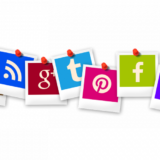Messenger App: Revolutionizing Communication in the Digital Era

Introduction
The advent of messenger apps has revolutionized the way we communicate in the digital era. These apps have become an integral part of our daily lives, allowing us to connect with friends and family across the globe in real-time. In this article, we will explore the evolution of messenger apps, their significance, and what makes them so popular among tech enthusiasts.
Understanding Messenger Apps

Messenger apps, also known as instant messaging apps, provide users with the convenience of exchanging messages, videos, and other media instantly. These apps have transformed the way we communicate, offering a platform that enables real-time conversations irrespective of distance or time zones.
Some key features of messenger apps include:
– Text Messaging: Users can send and receive text messages, ensuring quick and efficient communication.
– Multimedia Sharing: Messenger apps allow users to share photos, videos, and documents seamlessly.
– Voice and Video Calls: Many messenger apps offer voice and video calling features, allowing users to have face-to-face conversations no matter where they are located.
– Group Chats: Users can create group chats, enabling multiple participants to engage in a conversation simultaneously.
The Evolution of Messenger Apps
Messenger apps have come a long way since their inception. Let’s take a trip down memory lane and explore their evolution over time.
1. Early Days (1990s-2000s):
– The first messenger app, ICQ, was launched in 1996, allowing users to send instant messages to each other.
– Other notable messenger apps during this period include AIM (AOL Instant Messenger) and MSN Messenger.
– These early messenger apps laid the foundation for the future development of communication platforms.
2. Rise of Mobile Messaging (2000s-2010s):
– With the widespread adoption of smartphones, messenger apps started becoming more prevalent.
– BlackBerry Messenger (BBM) gained popularity as a secure and reliable messaging app, especially among business professionals.
– WhatsApp, launched in 2009, revolutionized the industry by offering cross-platform messaging and end-to-end encryption.
– Facebook Messenger, initially integrated within the Facebook platform, was later released as a standalone app, attracting millions of users.
3. Current Landscape (2010s-Present):
– Messenger apps like WhatsApp, Messenger, WeChat, and Telegram dominate the market today.
– These apps have expanded their features to include voice and video calling, multimedia sharing, and integration with other platforms.
– The seamless integration of chatbots in some messenger apps has further enhanced the user experience, allowing businesses to provide customer support and services.
Why Messenger Apps Matter
Messenger apps have become an indispensable part of our lives, offering numerous benefits and conveniences. Here are some reasons why they matter:
1. Global Connectivity:
– Messenger apps have broken down geographical barriers, allowing people to connect and communicate with individuals from different parts of the world.
– They have become instrumental in maintaining long-distance relationships, connecting with loved ones, and fostering global friendships.
2. Real-Time Communication:
– Messenger apps provide instant communication, ensuring that messages are delivered and received in real-time.
– This immediacy facilitates efficient collaboration, especially in professional settings where quick responses are crucial.
3. Privacy and Security:
– Many messenger apps prioritize user privacy and security by incorporating encryption and other security measures.
– End-to-end encryption ensures that only the sender and recipient can access the messages, protecting sensitive information from unauthorized access.
4. Multimedia Sharing and Collaboration:
– Messenger apps allow users to share multimedia files such as photos, videos, and documents.
– This feature is particularly useful for collaborative work, enabling seamless sharing and feedback among team members.
In conclusion, messenger apps have evolved from simple text-based messaging platforms to powerful communication tools that facilitate real-time global connectivity. Their impact on the way we communicate cannot be underestimated, and their popularity among tech enthusiasts is a testament to their significance. As technology continues to advance, we can expect messenger apps to further enhance our communication experiences, making the world a smaller and more connected place.

















